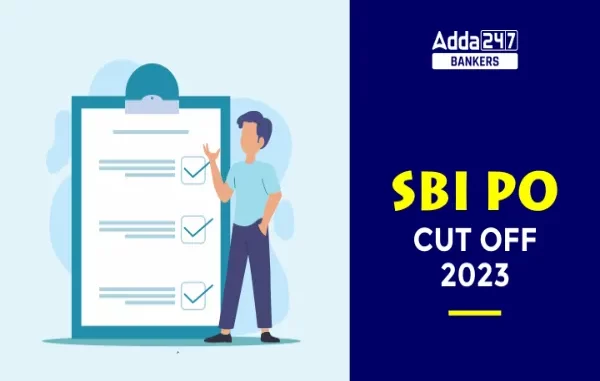
The State Bank of India (SBI) Probationary Officer (PO) examination is one of the banking sector’s most prestigious and competitive exams. It comprises two crucial phases: the Preliminary examination and the main examination. Understanding the SBI PO cutoff for Prelims and Mains and successfully transitioning from one phase to another is critical to achieving your dream of becoming an SBI PO. This article delves into the significance of cutoff scores and the strategies for seamlessly transitioning from Prelims to Mains.
Understanding Cutoff for Prelims
Selection for Mains
The Preliminary examination is the first hurdle in the SBI PO recruitment process. To transition to the Mains phase, candidates must score above the cutoff for Prelims, which the bank determines based on the number of vacancies and the performance of candidates.
Balancing Sections
SBI PO Prelims typically consist of three sections: English Language, Quantitative Aptitude, and Reasoning Ability. Candidates must score above the cutoff in each section to qualify for the Mains examination. Balancing preparation across all sections is crucial to achieving this goal.
Competitive Nature
The competitive nature of the preliminary examination makes it imperative for candidates to aim for a score well above the cutoff. As only a limited number of candidates progress to the Mains phase, securing a comfortable margin above the cutoff is essential.
Strategies for Navigating the Prelims to Mains Transition
In-Depth Preparation
Transitioning from Prelims to Mains requires a shift in preparation strategies. While Prelims focus on basic concepts and speed, the Mains examination delves deeper into each subject, requiring in-depth knowledge and analytical skills. Candidates must adapt their study plans accordingly.
Prioritising High-Scoring Sections
In the Mains examination, certain sections, such as Reasoning and Computer Aptitude and Data Analysis and Interpretation, are known to carry higher marks weightage. Candidates should prioritise these sections while preparing to maximise their scores.
Mock Tests and Time Management
Practising with Mains-level mock tests is essential. It lets candidates become acquainted with the exam pattern, manage their time effectively, and gain confidence in tackling complex questions.
Strengthening Descriptive Writing
The main examination also includes a Descriptive Paper, which evaluates candidates’ English language skills and ability to articulate thoughts clearly. Preparing for this section is crucial as it often serves as the differentiator in the final selection.
Understanding SBI Cutoff for Mains
Selection for Interview
Once candidates clear the Prelims and reach the Mains phase, the focus shifts to the cutoff for Mains. This score is a determining factor for proceeding to the interview round. The SBI sets the cutoff based on the overall performance of candidates in the Mains examination.
The Role of Descriptive Paper
The Descriptive Paper in the main examination is also assigned a separate cutoff. Candidates must score above this cutoff to ensure their eligibility for the interview round.
Final Selection Criteria
The cumulative score in the Mains examination (Objective + Descriptive) is used to select candidates for the interview phase. Candidates securing scores above the cutoffs in objective and descriptive sections are invited for the interview.
Interview Preparation and Final Selection
Articulating Well
The interview round is a crucial aspect of the final selection. Candidates are assessed on their knowledge, communication skills, general awareness, and suitability for the role. Preparing for common interview questions and staying updated with current affairs is vital.
Merit List and Selection
The final selection of SBI POs is based on the merit list, which considers the candidate’s score in the Mains examination and the interview. Candidates who score above the SBI PO cutoff and perform well in the interview are offered the coveted position of Probationary Officer.
Conclusion
Successfully transitioning from the SBI PO Prelims to Mains is a significant milestone in becoming a Probationary Officer. A well-rounded preparation that covers all sections, thorough practice, and effective time management will help you clear the Prelims and excel in the Mains and interview stages. This ensures your place in the final merit list and fulfils your dream of joining the State Bank of India as a Probationary Officer.
Content Quality Form
Content Proof checked by: Keerti Baskoti
Relevancy:
1. Related to the client’s products or services (Yes)
2. No Review type content (Yes)
3. Relevant to the target link included in the article (Yes)
Topic:
1. Topic should be editorial and related to the brand’s product or service (Yes)
2. Content should not be overly promotional about the brand’s product or service (Yes)
3. Quality (Yes)
4. Written in Indian English (Yes)
5. No grammar, spelling errors, run on sentences, etc. (Yes)
6. Minimum 500 words (Yes)
7. Tense, POV maintained across the content (Yes)
Links:
1. Link is geo-focused; content should be related to that geo. Ex: if the link is about a specific location, the content should also be related to that location (Yes)
2. Link is not out of place with the content (Yes)
3. Link should appear as early in the content as possible (Yes)
4. Only include the 1 brand link provided (i.e. do not add additional links to the client’s other pages or homepage unless specified) (Yes)
Anchor Text:
1. Matches exactly with what is provided (pay attention to intentional misspellings and upper/lowercase) (Yes)
2. Flows naturally into the sentence and not be awkwardly stuffed in other links (Yes)
3. Included at least 1 outbound relevant link to non-competitor sites (Yes)
4. Included at least 1 internal relevant link within the shortlisted site (Yes)
5. Anchor text is relevant to the page it’s linking to (Yes)
Disclosure
1. Not written as if the client wrote it, do not use terms like “we” and “us” (Yes)
2. Relevant Image included (No)

Leave a Reply